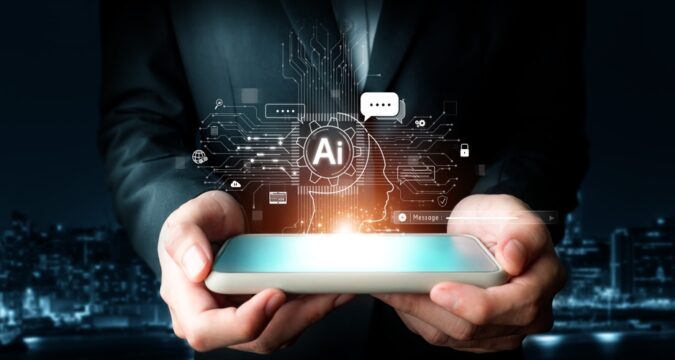
The decentralized artificial intelligence startup Sahara AI has secured $43 million in funding to create an AI and blockchain-based ecosystem. Pantera Capital, Binance Labs, and Polychain Capital led the latest funding round. Other participants include Samsung NEXT, dao5, Canonical Capital, Geekcartel, Matrix Partners, Nomad Capital, Foresight Ventures, Mirana Ventures and SCB 10X.
Revolutionizing AI Attribution on Blockchain
Sahara Labs has been developing this platform since 2022 to incorporate on-chain attribution across the whole AI development process. This project aims to appropriately recompense everyone who contributes to its development through infrastructure operation, model tweaking, or application development.
The startup’s novel approach presents a decentralized paradigm that puts equality and transparency first. Furthermore, Sahara Labs is attempting to move the AI sector away from the centralized Web2 paradigm, in which user contributions are frequently taken advantage of without sufficient disclosure or reward.
Under the current approach, users exchange their knowledge for access to AI tools, but they are mainly oblivious that centralized AI providers are using their proprietary data. As a solution, the team behind Sahara Labs proposed a new course of action that guarantees every contributor’s recognition and compensation for their efforts.
Ensuring Security and Transparency
The Sahara Blockchain Protocols, a safe and open framework for managing AI assets on the blockchain, form the cornerstone of Sahara Labs’ goal. These protocols are designed to tackle major issues facing the AI sector, specifically those related to income allocation, ownership, and attribution.
In addition, the protocols provide robust mechanisms for asset monitoring, access control via licensing, non-transferable record security, and equitable contribution attribution by utilizing AI-based solutions. Sahara Labs hopes to ensure the safe creation, sharing, and trading of AI assets while upholding the sovereignty of data and models through this novel architecture.
This strategy creates a more equal and safer environment for AI development by fostering inclusivity and protecting privacy. Sahara Labs’ primary vision is to redefine the user-provider relationship in artificial intelligence.
Addressing AI Centralization Challenges
Moreover, a significant issue identified by Sahara Labs is the frequent lack of transparency in AI-based services. When using these services, users frequently engage with them without realizing how their data is being used or the source of the AI’s knowledge.
Important concerns concerning the management and application of AI systems also surfaced. Thus, Sahara Labs’ solution addressed these concerns by offering a decentralized platform where the use of data is transparent, and contributors have permitted the platform to use their data.
Hong Kong Unveils Generative AI Sandbox
While Sahara Labs is advancing the AI industry through blockchain, Hong Kong’s central banking institution, the Hong Kong Monetary Authority (HKMA), is also making strides in AI adoption. The HKMA and Cyberport, a state-run technology business, introduced the GenA.I. sandbox.
This platform will investigate how artificial intelligence (AI) can be used in risk management, fraud prevention, customer support, and process re-engineering in the financial sector. Financial institutions and technology firms can test generative AI applications in a safe setting with supervisory feedback using the GenA.I. sandbox.
The HKMA’s executive director, Carmen Chu, stressed the significance of removing the obstacles to the widespread adoption of GenA.I., such as the requirement for strong computational skills and clear and simple supervisory guidelines. This program is a component of HKMA’s Fintech plan for 2025 to encourage the use of Fintech in Hong Kong’s financial industry.
HKMA Chief Executive Eddie Yue added that the sandbox helps banks test and improve their GenA.I. application cases in a risk-controlled environment. Hence, he urged banks to maximize this asset and incorporate generative AI technologies into their operational procedures.
The HKMA’s recent training sessions for the local banking industry, which focused on useful AI implementation tactics, further highlight the organization’s proactive attitude to AI adoption.
Balancing Innovation with Regulation
Notably, the Securities and Futures Commission of Hong Kong (SFC) continues to perform oversight functions on the crypto industry, even as the HKMA promotes innovation through AI. Seven cryptocurrency trading sites operating unlawfully in the area were issued warnings by the SFC in July.
These exchanges were charged with various allegations, including using extortion tactics and refusing withdrawal requests. Hence, the SFC and HKMA’s actions highlight their focus on balancing legal compliance with promoting technological innovation.


